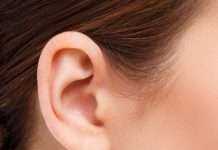If you have been suffering from hyperacidity symptoms and always feeling nauseated from the excessive acid in your stomach due to your gastro-esophageal condition, you may not be aware of it, but this may also be the culprit for your chronic laryngitis.
Chronic laryngitis affects people of all ages and may come round at any time of the year. So it is important for you to know the laryngitis treatment and management options to prevent recurrent inflammations of your larynx.
Laryngitis affects your voice box that is why you will often experience hoarseness in your voice, pain, dry and sore throat, difficulty eating and swallowing, frequent dry coughs and increased salivation.
If it becomes infected you will have more problems of fever and flu-like symptoms, difficulty of breathing and sometimes spitting out of blood due to the irritated and damaged mucus membranes.
What Causes Laryngitis and what are the Ways to prevent them?
It is also equally important for you to know what causes it, so you would know how laryngitis treatment will help prevent them from frequently bothering you.
Bacterial, Viral and Fungal Infection
This the most frequent cause of laryngitis that may be due to poor mouth and oral care, ingestion of dirty food or using contaminated utensils and dinnerware.
To prevent this from happening be sure to perform your oral care at least 2 to 3 times daily. A good mouth wash may also help you get rid of any infection-causing microorganism. Always perform hand washing before and after meals and most importantly only eat food that you are certain to be clean.
Underlying Primary Conditions
Diseases like pulmonary syphilis or AIDS may cause laryngitis infection, it could be for several reasons and one is due to a compromised immune system, a person easily catches mouth infection that leads to laryngitis.
To prevent laryngitis, the underlying illness should be treated immediately and means to boost the immune system like getting enough rest and sleep, regular exercise and healthy balanced diet should be followed.
Allergies and Respiratory Infections
Due to the proximity in their structure, any infection of the respiratory system like bronchitis, sinusitis and pharyngitis that you may have may also predispose you to have laryngitis. Allergies of the mouth cause irritation that precipitates inflammation of the larynx as well.
To deal with this and prevent laryngitis, it is important to seek early consultation so that necessary steps to treat your respiratory infection can be employed.
On the other hand, if you have known allergies, avoid over exposure to allergens causing you mouth irritation; examples would be eating too much sweets, drinking cold beverages, exposure to strong scents and chemicals, and smoking are some of them.
Prolonged Speaking
Public speakers and educators are commonly affected by laryngitis due to their work requirement. Talking for long periods causes inflammation of the vocal chords.
Laryngitis treatment would be to avoid talking for long periods of time or have in between breaks, so if you are a public speaker coordinate with the organizers to include break periods in your program to allow the voice box to have some rest periods. Avoid drinking cold beverages immediately after speaking for long hours and avoid spicy foods.
Smoking
Smoking not only causes laryngitis but may other more serious illnesses; with laryngitis the smoke and nicotine content of cigarettes causes long term laryngitis.
There is only one solution to this – that is for you to “Stop Smoking!”
Chronic Cough
Chronic cough may also be due to allergies or as a result of excessive smoking.
Laryngitis treatment in these cases, treat the primary cause and take note of the risks so as to prevent other conditions that predisposes you to having laryngitis.
Gastro-esophageal Reflux
GERD is a condition when you have hyper-acidity and are experiencing reflux of food just eaten with a high content of acid that irritates the larynx.
To prevent GERD-related laryngitis it is best to talk to your health provider how you can reduce acid production, one way is by taking antacid medications and another is to avoid hi fatty and spicy foods, avoid also drinking liquor. This works vice versa, laryngitis treatment will also help lessen the symptoms of GERD.
At Home Laryngitis Treatments
Other than the preventive management options there are simple home remedies you can do,
Steam Inhalation:
The warm temperature coming from the steam improves circulation and promotes healing and is a good home laryngitis treatment. To do this you can do a warm tub bath; just make sure that the windows are also closed so that the steam can circulate around the bathroom.
If you don’t have a bath tub simply fill a pail with hot water and stay inside the room while the steam fills the room or a fast way is to heat water in a kettle (do not boil as this may cause burning) and then make a paper cylinder and tear the end enough to fit the kettle nozzle then as the steam goes out of the kettle inhale the steam from the paper cylinder. Do this twice or three times a day for 10 to 15 minutes.
Humidifier:
Avoid staying for long periods of time in air conditioned rooms with no humidifier because the dry air will cause dryness of your mouth that can lead to irritation.
Increase Fluids:
Preferably warm or tap water. This is a part of laryngitis treatment, where you would have to drink at least 8 to 10 glasses of water per day; this will moisturize your throat if you have mouth dryness.
Gargle with Normal Saline or Vinegar Solution:
Normal saline solution is simply warm water with a few teaspoons of salt; vinegar solution is a mixture of equal parts of water and vinegar. Gargle using these solutions for 2 to 3 times a day. The warm water will soothe the mouth and larynx plus the salt or vinegar with its antibacterial property will help with laryngitis treatment.
Avoid use of Decongestants and Oral Mouthwash:
Both preparations will cause dryness of the mouth that can worsen your laryngitis. This is also important as a part of your laryngitis treatment.














